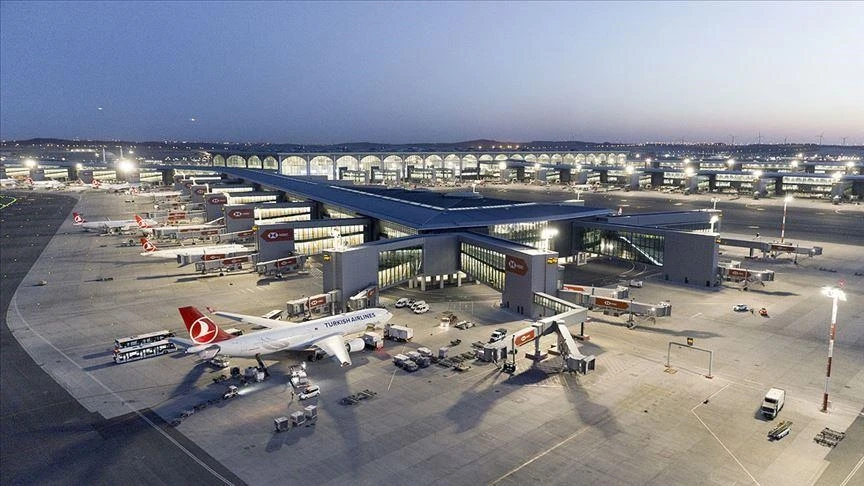Syrian cuisine thrives in Istanbul as refugees rebuild their lives
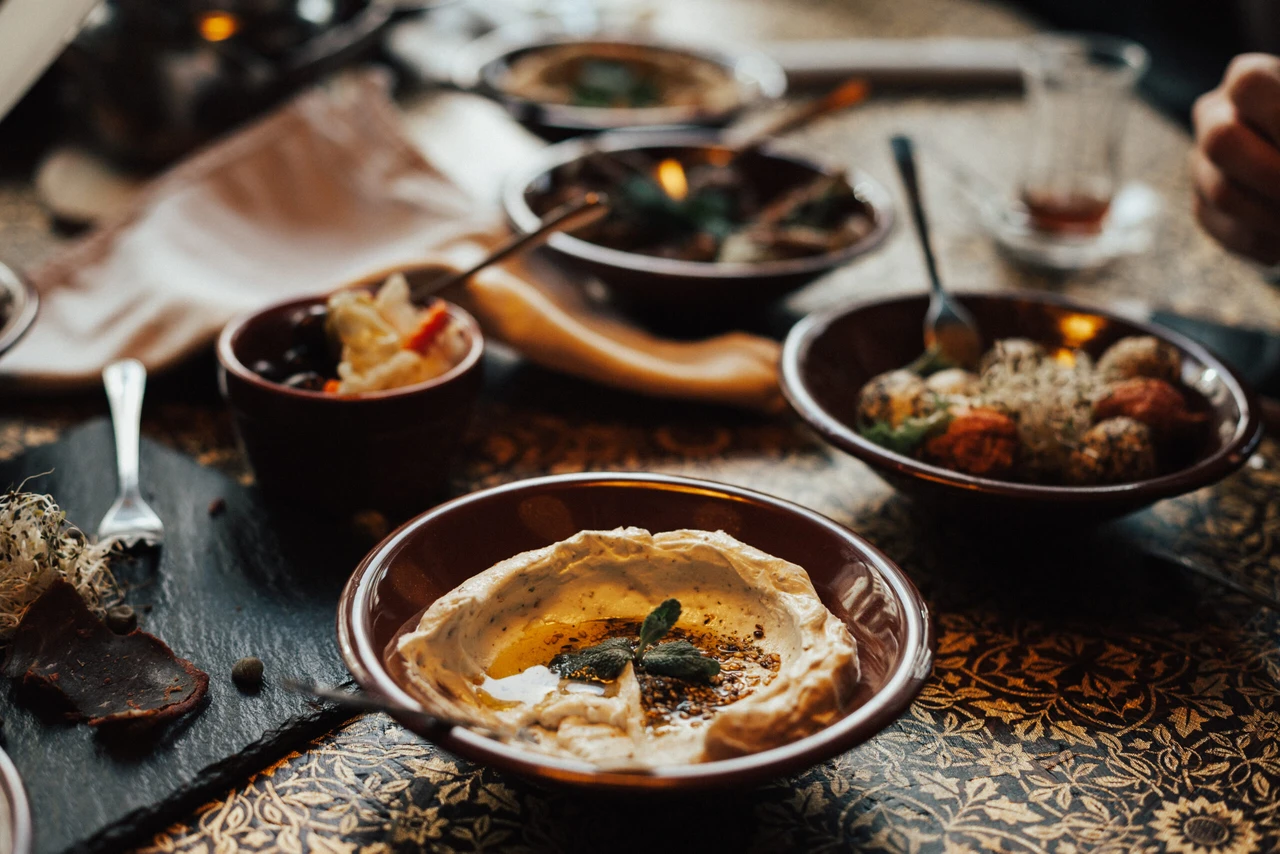 Appetizers from Syrian cuisine. (Adobe Stock Photo)
Appetizers from Syrian cuisine. (Adobe Stock Photo)
Years ago, Syrians fleeing war arrived in Istanbul, bringing not only their hopes for a new life but also their rich Syrian cuisine. Over the past decade, historic districts like Fatih have become home to numerous Syrian restaurants, offering far more than just falafel. These eateries have introduced Istanbulites to an array of authentic dishes that go beyond the well-known chickpea fritter.
Daily Hurriyet from Türkiye reveals that some Syrian restaurant owners and chefs in Istanbul are introducing Istanbul residents to a variety of authentic Syrian dishes.

Bludan Restaurant: A taste of Damascus
Muhittin Adnan, a 30-year-old employee at Bludan Restaurant, describes their signature dish: Damascus-style doner, prepared with special spices and garlic mayo. A wrap costs $2.8, while a set menu is $4.4. Named after Bludan, a large village near Damascus, the restaurant opened in 2019 and also serves hummus ($3.3) and crispy chicken options. Adnan, like his colleagues, came to Istanbul after the war.
Now, with Syria reopening, they contemplate returning but remain cautious. “The day the Assad regime fell, we celebrated by giving away 300 kilos of doner for free,” he recalls.
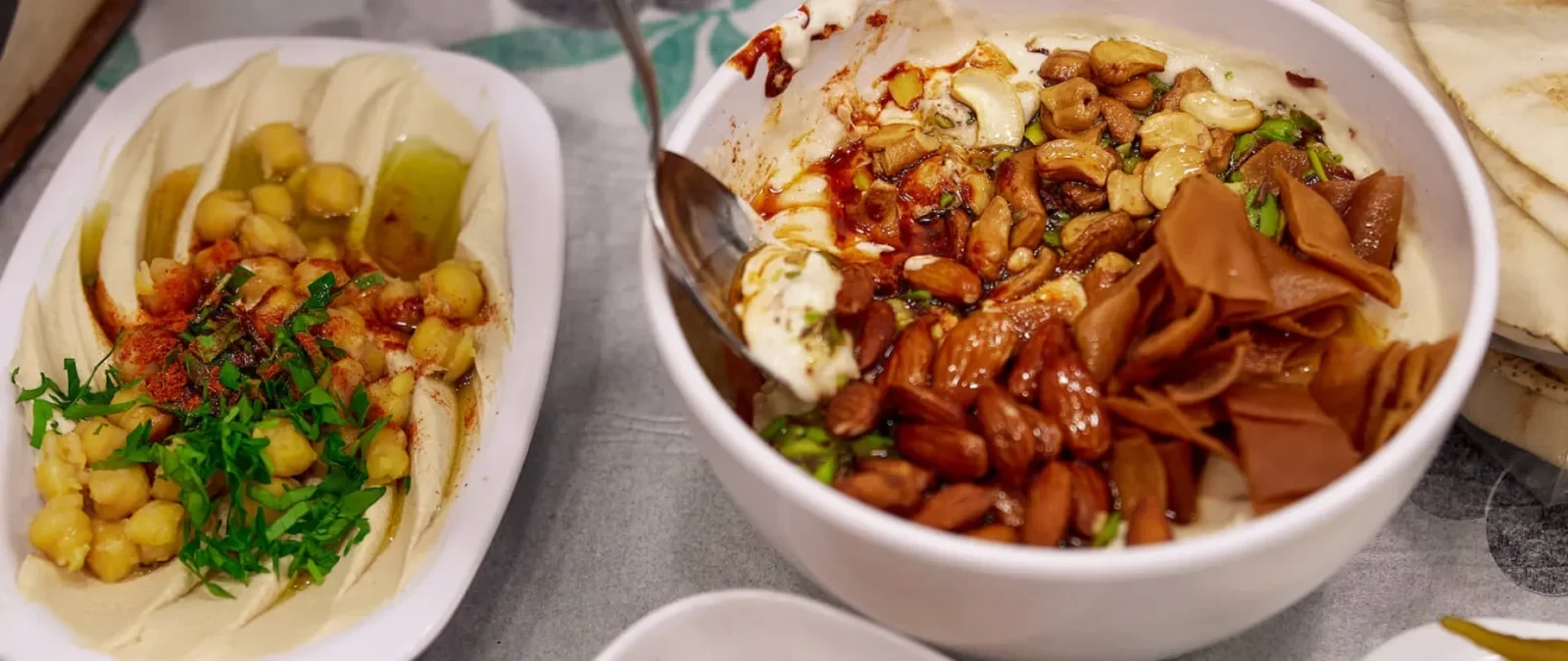
Buuzecedi: A vegetarian delight
Basem Sauan, a 57-year-old chef, opened Buuzecedi in 2017, named after a restaurant in Damascus. The word means “carob.” This eatery specializes in Syrian-style breakfast and vegetarian dishes like ful (fava beans), falafel, and fette—a dish combining chickpeas, bread, tahini, and yoghurt sauce. Sauan, who worked in the restaurant industry in Syria, fled to Istanbul in 2014.
“My children are studying at university here. I do not plan to return, but I might visit,” he says.
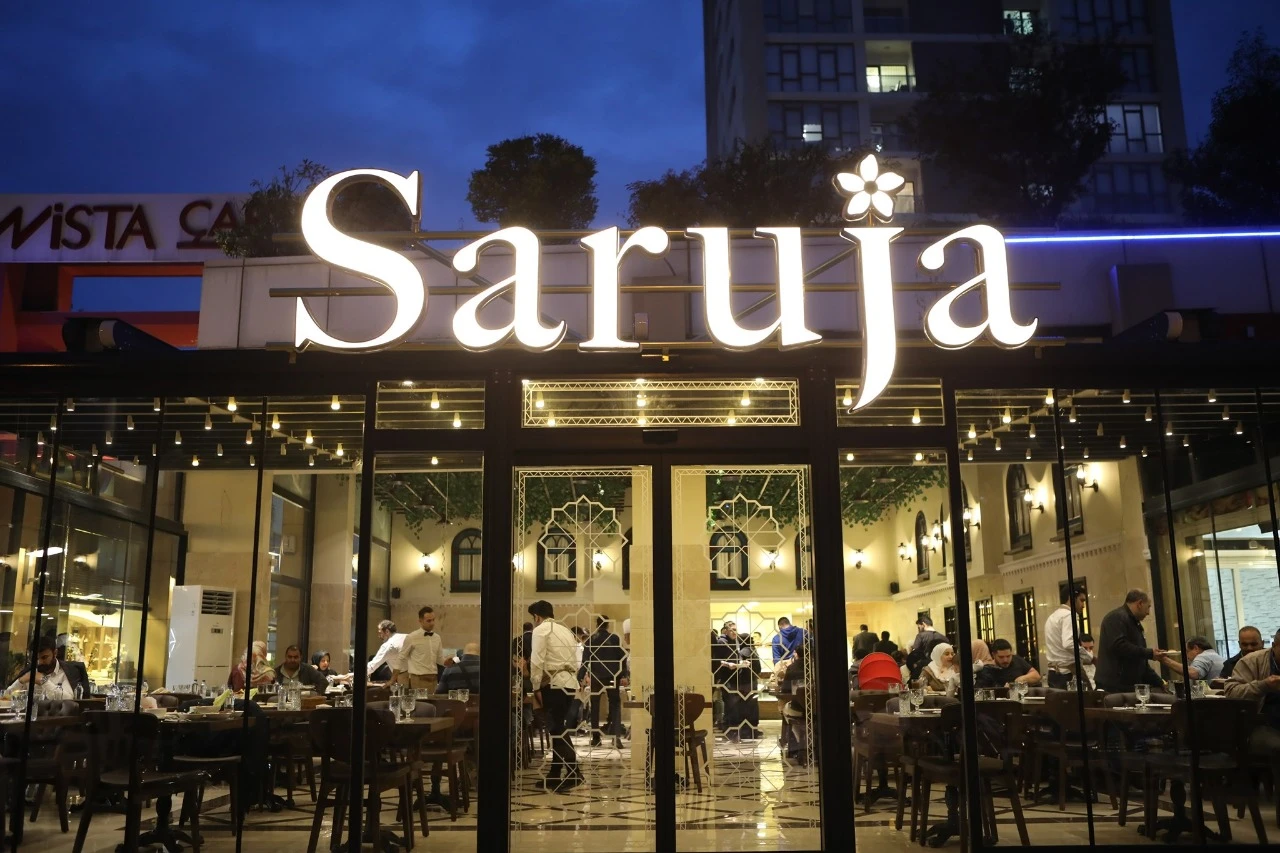
Saruja: A journey through Syrian flavors
Named after an ancient district in Damascus, Saruja has been serving customers for eight years, with another branch in Basaksehir.
Manager Mohamad Talal Albukai notes that Turkish customers particularly enjoy their breakfast offerings. Signature dishes include spicy potato and chicken, grilled skewers, stuffed kofta, freekeh pilaf with lamb, and buttery fette with Damascus pistachios ($6.2). Their lamb-stuffed vine leaves ($41.8) and molokhia—a green leafy vegetable dish served with chicken ($10.7)—are also popular. Albukai has no plans to return to Syria anytime soon.
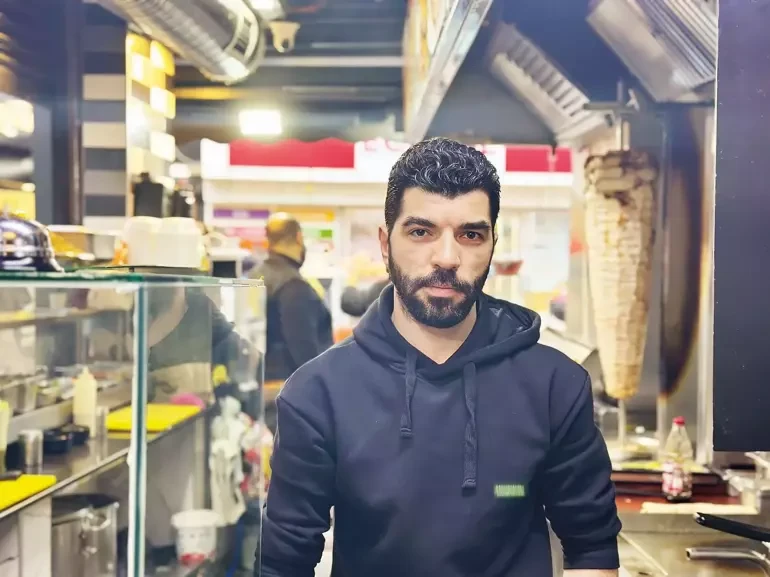
Toshka: Fusion of Syrian cuisine and Türkiye’s Hatay cuisine
Toshka Restaurant, established four years ago, takes its name from a famous Syrian cuisine dish. Employee Ayman Khalil highlights their unique version of lahmacun, made in the Damascus style. Other menu items include Syrian-style doner ($2.5), falafel ($1.8), and traditional chickpea dishes ($3.3).
“Our doner contains only meat, pickles, and a special sauce—no onions, tomatoes, or potatoes,” Khalil explains. Around 50%–60% of their customers are Turkish. While Syria and Hatay share many culinary similarities, Khalil feels settled in Türkiye. “We built a new life here. Even if Syria stabilizes, we have grown accustomed to this city,” he says.
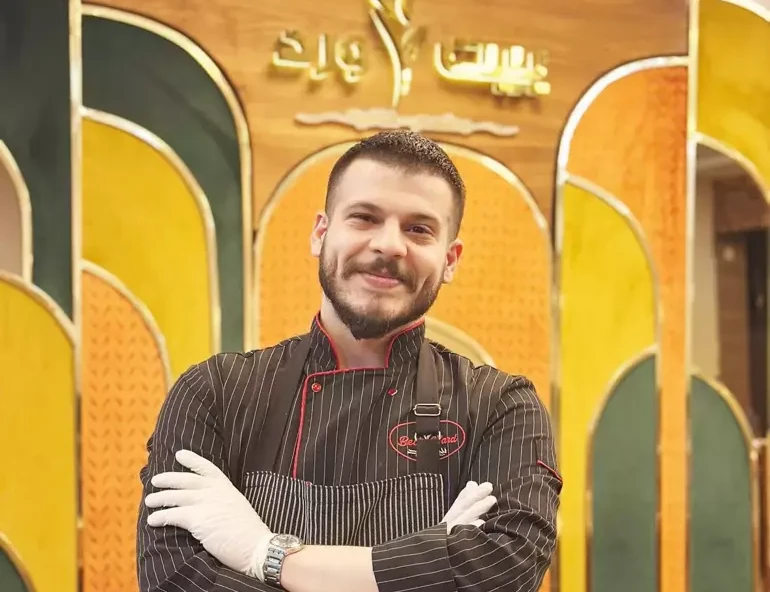
Gul Evi (Bayt Ward): From student to Chef
Karam Darwich, a 27-year-old chef, came to Türkiye before the war and studied business at Canakkale Onsekiz Mart University. While a student, he worked at his uncle’s restaurant and later helped open Gul Evi (Rose House) in 2017. Most of their staff are Syrian, while the majority of customers come from the Middle East.
Popular Syrian cuisine’s dishes include mensef (lamb pilaf with yoghurt, $16.4), kibbe lebeniye (yogurt-stuffed kibbeh with pistachios, $13.6), and marina—a traditional dish wrapped in lavash with meat, parsley, onions, garlic, pomegranate molasses, and spices ($12.2). “Our breakfast meze platter ($3.70) with hummus, mutabbal, baba ghanoush, and muhammara is a favorite,” he adds.
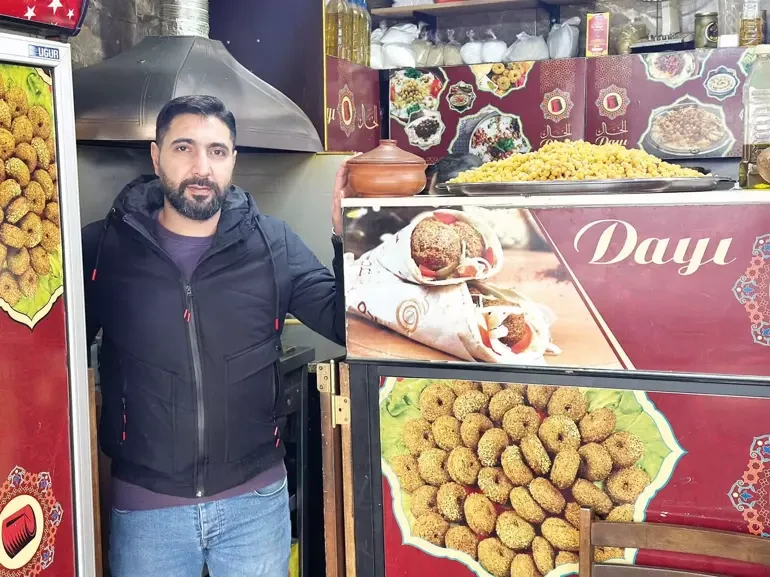
Alkhal: Secret spice of falafel
Hamed Gurbal, 39, arrived in Türkiye in 2015 and bought his restaurant two years later. Formerly an accounting teacher in Syria, he named the establishment Alkhal, meaning “uncle.”
“When I first arrived, there weren’t as many falafel shops in Istanbul. We use a special spice blend for our falafel,” he reveals. Their falafel wrap includes hummus, tomatoes, pickles, cucumbers, parsley, mint, and tahini sauce. Turkish customers have embraced Syrian dishes like fette and fava beans.
“Wednesdays are our busiest days due to the neighborhood market,” he notes. Gurbal, who lives in Istanbul with his wife and daughter, hopes to gain Turkish citizenship. He hasn’t visited Syria since 2015 but is considering opening a branch there.


